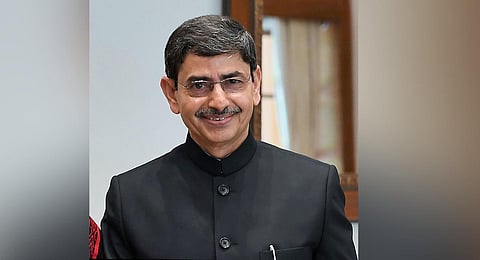

CHENNAI: Claiming that Governor RN Ravi is trying to dilute the Tamil Nadu government’s autonomy in appointing vice-chancellors to state universities, the state government moved the Supreme Court seeking to restrain him from issuing notification or constituting search panels or performing any similar acts contrary to the laws governing the varsities.
The state government has filed three petitions through senior counsel P Wilson and advocate on record (AoR) Sabarish Subramanian challenging the governor’s act of constituting search committees on his own to shortlist eligible candidates for the V-C posts at Bharathiyar University, Tamil Nadu Teacher Education University and the University of Madras while not giving consent to recommendations of the state government.
The petitions sought an interim stay on the impugned notifications issued by respondents and restrained him from forming search panels contrary to the Acts governing the three varieties. The contention arose when the governor formed search committees by including a nominee of the University Grants Commission (UGC). “The chancellor is attempting to dilute the state’s autonomy and power of the UGC which is against the constitutional framework and provisions,” the state alleged.
TN government held that the ‘chancellor’ cannot use his position as ‘governor’ and use the administrative machinery of the governor’s secretariat to issue notifications, letters and press releases when the issue pertains to his statutory function as ‘chancellor’ under the state laws.“The governor is conflating his position as a constitutional authority with his statutory function as a chancellor of the university,” it said.
Moreover, it said the governor cannot issue statutory notifications but only appropriate government departments can issue them as per extant business rules framed under Article 166 of the Constitution.
Further, it noted that the respective state Acts are statutes within the exclusive legislative domain of the state and hold the highest pedestal whereas the regulations of the UGC are only ‘delegated legislation’ hence the statute has to prevail over the delegated legislation and the UGC regulations cannot ‘nullify’ a state Act. Since the state spends its funds to create and nurture the universities, it has exclusive control, and the officers of such universities must not be surrendered to a body created by the Union legislature, the state added.